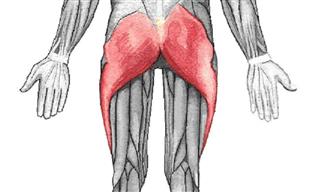1. Sugarless Chocolate
When you see a product, such as your favorite chocolate bar, proudly labeled ‘sugar free’, you’ll want to have a good look at the nutritional information on the packet. If a company has removed sugar from the recipe, how have they maintained their popular flavor? They do so by adding fat and upping the carb and calorie content. So, there is no benefit to be gained whatsoever.
You are better off buying the standard bar, but not eating the whole thing straight away. As Sheryl says, ‘the sugar-free market is booming thanks to our ignorance!’
2. 'Brown' Bread
Did you know that real brown bread should crumble under pressure, when you hold it? If the bread you have doesn’t do this it probably is white bread, dressed up to look like brown bread. Shocking and unlikely as it may sound, it is true. As Sheryl says, ‘some manufacturers add caramel color to the dough to give it its brown color.’ They also add 3-parts refined flour to 1-part wheat flour, when wheat flour is what they should be using as the main ingredient.
In the future, check the ingredients label to see if wheat flour is the main ingredient. If not, you’ve been fooled, because food producers know we expect brown bread to be healthier.
3. Multigrain & High-Fiber Cookies
Often, when some of us feel a touch of inopportune hunger kicking us in our bellies and we don’t have time to prepare a meal, we grab a pack of cookies and munch many of them. Since we’ve read they are ‘multigrain’ and ‘high fiber’, we believe we’ve done nothing but good to our health. Well, we are wrong, again.
Food manufacturers actually increase the levels of sugars and fats in these cookies to bolster their one-sided health claims, while making the biscuits tasty enough for us to devour them gladly in a few wild minutes.
4. Fat-Free Cereals
Cereals have been gaining in popularity ever since WWII, so that now it’s commonplace for many of us to have grown up eating them daily. But, unfortunately, cereal makers are some of the absolute worst perpetrators of food fraud.
Although there are many genuine cereals on the market today, most of the well-known versions are coated in far too much sugar, sodium and other additives that are used to offset the unappealing taste of the fat-free or low-fat cereals that would otherwise be produced by their factories.
5. Light Butter
Until quite recently people were convinced of the utter superiority, health-wise, of margarine over butter. Yet the truth is that, whatever the pros and cons of butter, margarine is by no means free of fat, though it may not contain cholesterol. Margarine contains saturated fat, trans fat and plenty of salt, which are not good for the heart. If you consider that margarine only exists as a cheaper and healthier alternative to butter, this really is not good enough.
6. Energy Bars
Sheryl has some good, clear advice when it comes to choosing a cereal bar to purchase. She says we should always check the nutritional information, and make sure a bar has less than 200 calories, less than 5 g fat, 5 g or more fiber, and 15 g or more protein. There are though hundreds of different types of power bars on the market. Many of them promise different benefits.
Most claim they are high in this and low in that, according to whichever slice of the market they want to claim for themselves. The main problem is that the majority of these bars do contain an awful lot of sugar, perhaps as much as a Snickers bar. At least the Snickers bar is not sold under false pretenses, though, unlike these ‘healthy’ cereal bars.
7. 'Diet' Food
Many of us like to unwind with a satisfying bag of chips, or similar snack. Yet there are quite a lot of ‘healthy’ versions of these snacks on the market. They exist because we know that snacks are not so good for us. Unfortunately, the ‘healthy’ versions are not healthy either. They just allow us to suppose that they are, by relying on their claims to be low fat or fat free. As ever, fat is not the only, or even the main, problem with these snacks when eaten in excess. Yet the problem could be even worse, because by making ‘low fat’ snacks, some food companies may even be adding ‘partially hydrogenated vegetable oil’, which contains harmful trans fats.
8. Flavored Yogurts
The problem with flavored yogurts is that the added ‘fruit’ comes largely from concentrate, which means high levels of sugar. A 150 g portion of Greek yogurt should give you 80 calories and no added sugar, whereas an average flavored yogurt offers 130 calories and 20 g of sugar.
The sugar is added to give the yogurt that extra flavor which makes it so tempting to shoppers. Yet there is nothing healthy about these flavors. Greek yogurt, on the other hand, is quite sumptuous, and there is nothing stopping you from adding your own fresh fruit to it yourself.
9. Ready-Meals
Ready meals aim to take the hassle and the time out of cooking for the supposedly time-poor shoppers that buy them. Who among us hasn’t succumbed to this tantalizing promise? On the one hand you won’t need to do any cooking or much cleaning, but on the other your health will be paying quite a high price for this too-good-to-be-true deal.
Food producers are able to make these ready meals by adding extra fats and salt to the mix. These help prolong their shelf-life, allowing companies to reach their sales targets with minimum wastage. Always check the labels for the sodium/salt content. Most of us take in 3,400mg of sodium per day, yet we should only be consuming 1,500. It’s purchases like these that are letting us down.
10. Cholesterol-Free Oils
Have you ever seen oils for sale that proclaim that they are free of cholesterol? The good news is that the claim will be true. The bad news is that ALL vegetable oils are, in fact, free of cholesterol. The claim is simply made as a marketing gimmick.
According to Sheryl, the best piece of advice you should take when it comes to oil consumption is to exercise moderation. She says that ‘heart friendly oil should be cholesterol- and trans-fat free, low in saturated fats and high in monounsaturated fat (MUFA) and polyunsaturated fat (PUFA), it should have an ideal omega-6 to omega-3 acids ratio and a high smoking point’.
 Go to BabaMail
Go to BabaMail


































